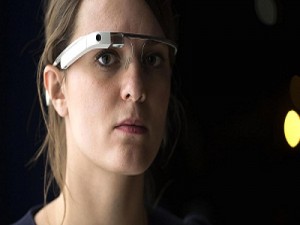Nov 16, 2014: On Friday, Reuters showed Sergey Brin, the Google co-founder without wearing his Google Glass in a public event. Though it was told later that he left it in the car, the picture stood out as he has always wore the device in all public appearances ever since its launch.
Not only the head of the top secret lab developed by Google, but also numerous developers and early Glass users seem to have lost their interest in the much hyped test version of the device priced at $1,500. Many developers claim that the vision of the Glass becoming popular amongst the consumers in the near future is pretty desolate.
Moreover, Reuters has managed to contact 16 Glass app makers and nine of them have claimed that they have stopped working on their projects. They seem to have given up because of perceived lack of customers or limitations of Glass as a wearable device. Three more app developers have switched to making apps for business than for consumers.
The larger developers are still working on projects around Glass and over 100 apps including Facebook, OpenTable and others have made their way to the official web site of the device. However, Tom Frencel, the Chief Executive of Little Guy Games claims market for apps on this Google gadget looks bleak as of now. Hence they have started looking forward for other platforms such as Facebook’s virtual-reality goggles Oculus Rift.
Moreover, some key Google employees involved in developing Glass have left the firm over the past six months and the list includes lead developer Babak Parviz, electrical engineering chief Adrian Wong and Ossama Alami, director of developer relations. Adding to this, Glass funding groups formed by Google Ventures, Kleiner Perkins Caufield & Byers and Andreessen Horowitz have deleted the website redirecting the users to main Glass site.
There are reports that the consumer interest for the device has also gone down; the original Google Glass wearers called Explorers are seen selling their devices on the e-commerce portal eBay for half its original price of $1,500. Also, the broad consumer launch of the device has been delayed now to next year 2015. The Explorers are being horridly called ‘Glassholes’ and it is not surprising that they have now put their glasses on sales.
Notably, Google has earlier started that the Explorers cannot sell their Glass units as this move is against the firm’s terms of service. However, the search engine giant could not enforce and control it as it could not deactivate the devices which were being re-sold to other individuals.
Google is still hoping to sell the Glass to the enterprise users and the Glass at Work initiative has managed to grab bulk sales of the device with a 2 for 1 price tag. However, the search engine giant is still committed for a consumer launch.
The report notes that them major problem with the Google Glass is its in-built camera that can quietly film anyone without their consent. This is a reason for the device to be banned by establishments such as bars, movie theaters and others. Was it too early for the times we are in? Has Google misread the demand for such a device? Or has the technology backfired to make it usable? There are many questions lingering in the minds of those who w

